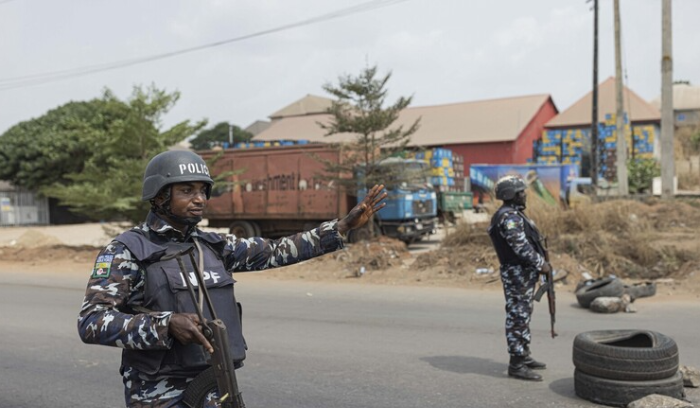The gunmen “murdered two of the police mobile force operatives and two staff of the consulate”, before setting their vehicle on fire in the attack on Tuesday, said police spokesperson Ikenga Tochukwu.
“No US citizen was in the convoy,” he said.
Security forces deployed to the scene, said Tochukwu, but the gunmen managed to abduct two police operatives and a driver.
A “rescue/recovery operation” was underway Tuesday evening, he added in his statement.
US national security council spokesperson John Kirby confirmed the attack during a briefing with reporters in Washington DC.
“A US convoy of vehicles was attacked. What I can tell you is that no US citizens were involved,” Kirby said.
The state department also confirmed the attack.
“US Mission Nigeria personnel are working with Nigerian security services to investigate,” a spokesperson said.
“The security of our personnel is always paramount, and we take extensive precautions when organizing trips to the field.”
Separatists who operate in the region have escalated their attacks in recent years, usually targeting police or government buildings.
Nigerian officials often blame attacks in the south-east on the outlawed Indigenous People of Biafra movement (IPOB) and its armed wing, the Eastern Security Network.
IPOB has repeatedly denied responsibility for the violence.
The group’s leader Nnamdi Kanu is a British-Nigerian citizen who was was arrested in Kenya and returned to Nigeria in what his family describe as an act of extraordinary rendition.
Separatism is a sensitive issue in Nigeria, where a declaration of an independent Biafra Republic by Igbo army officers in the southeast in 1967 triggered a three-year civil war that left more than 1 million people dead.
The military is also battling a 14-year-old jihadist insurgency in the north-east, gangs who kidnap and kill in the north-west and central states and piracy in the Gulf of Guinea.
After a brief calm period during February and March elections for the presidency and governorships, attacks have been on the rise in the last few weeks.
Peter Obi, the former Anambra State governor, who ran and lost in the 25 February presidential election, is one of those contesting Tinubu’s victory, claiming fraud.
The electoral commission has recognized “glitches” during the vote but has dismissed claims that the process was not free and fair.
Source:theguardian.com





